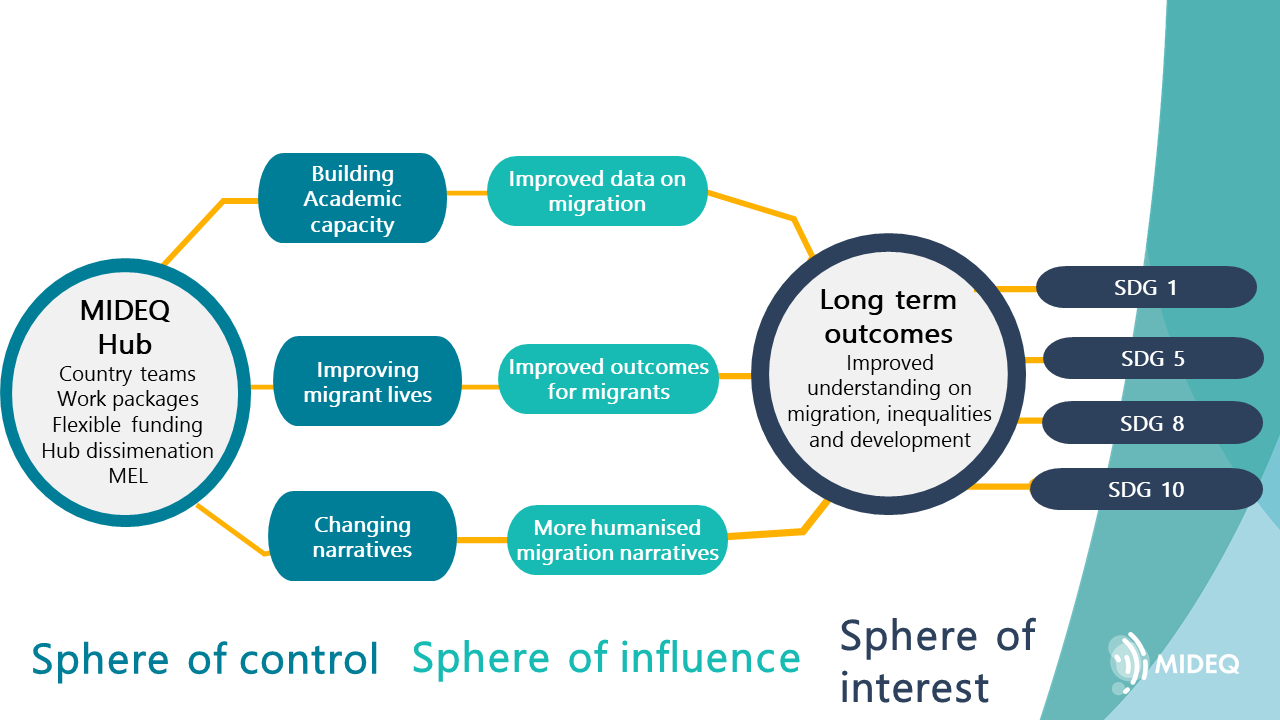The MIDEQ Hub’s overarching vision is to deepen academic and policy understandings of the relationships between South-South migration, inequality and delivery of the SDGs; explore the impact and effectiveness of interventions to reduce inequalities associated with South-South migration; improve information-sharing and learning around the key challenge; and influence national and international policy processes. It will do this by building institutional migration research capacity in the Global South, bringing this knowledge and expertise into contact with local, national and international organisations and institutions which can act as amplifiers to create change.
In collaboration with our partners, the MIDEQ Hub has developed an overarching Theory of Change (ToC) to ensure that its research supports and informs policies, interventions and approaches which generate the changes we want to see. Within our ToC, we identified three pathways to impact: building academic capacity; improving the lives of migrants and their families and changing narratives. Explore our pathways to impact across our Impact Interventions.
The ToC recognises that the relationship between research and influencing outcomes for migrants is non-linear. In other words, changing migrant outcomes is complicated through interactions of various stakeholders and networks. In the area of migration there are also many critical variables that might significantly outweigh the influence of research, not least political interests and narratives around migration.
The ToC diagram presented here is not intended to be a blueprint for MIDEQ’s work, but rather as a framework to facilitate discussion, reflection and learning about the ways in which MIDEQ work achieves higher level changes.
